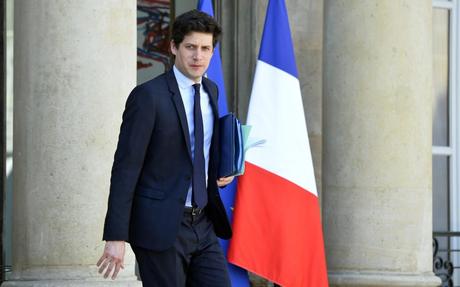
The European Commission is letting farmers down by dragging its feet in imposing the same environmental standards on foreign imports as on the continent, the former French agriculture minister has warned.
France receives approximately €10 billion in subsidies per year through the Common Agricultural Policy and has sufficient agricultural land to be self-sufficient.
Yet it imports cheap Chinese black wheat to make the famous Breton galettes, Canadian seeds treated with pesticides banned in the EU to make Dijon mustard, and vast quantities of antibiotic-laden Brazilian chicken off-limits to European poultry farmers.
In an interview with The Telegraph, Julien Denormandie, one of Emmanuel Macron's closest allies, said that while he was staunchly pro-European, contradictions like this meant he "fully understood" the peasant uprisings that roiled France and other European countries. last months.
The EU's draconian agricultural standards only worked if they were also applied to foreign imports, he said, adding that the European Commission had rejected his attempts to introduce so-called "mirror clauses" during his time in government.
His comments echoed those of British farmers who descended on Westminster last week with 150 tractors to express their anger at the government for allowing cheap imports produced using chemicals and methods banned in Britain.
Denormandie, 43, was one of Macron's first committed supporters when he ran for president in 2017 and became a respected agriculture minister from 2019 to 2022.
Faced with the Commission's stubbornness over the ban on Brazilian poultry injected with 'growth' antibiotics - which are authorized in the EU only for the treatment of sick animals - he used a decree to allow such meat in France anyway. prohibit.
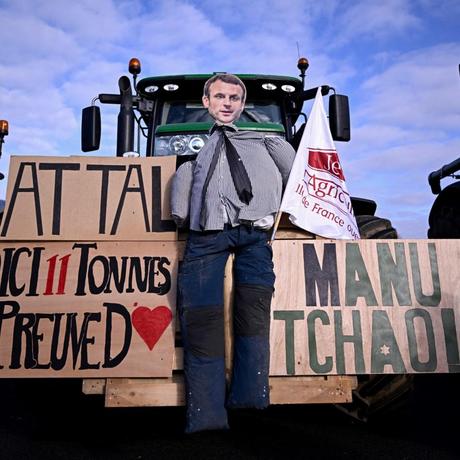
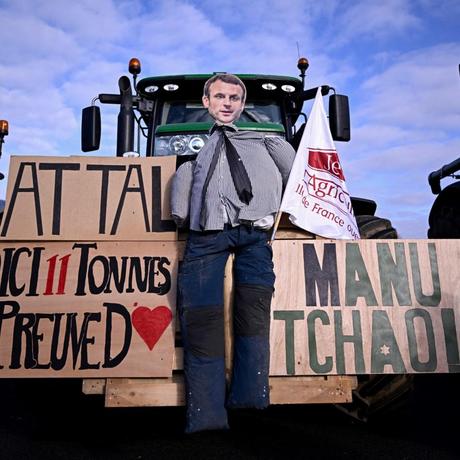
He also sought to push the committee to measure the expected impact on farmers of the Green Deal to reduce net greenhouse gas emissions by at least 55 percent by 2030, an issue that became a major point of contention for farmers in the Netherlands and elsewhere .
The story continues
The emissions targets "led to a reduction in European agricultural production by 7 to 15 percent, and an increase in food prices and imports," he said.
He complained that while the EU is very good at setting environmental protection targets when it comes to creating "production targets in grains and proteins, we don't have them".
"Once we set these two goals, the question is: how do we get there? This vision is missing," he said.
He left politics to join a carbon data start-up called Sweep in 2022.
He has since written a book warning of an uprising by brewing peasants in a chapter entitled "Le monde à l'envers" - the world turned upside down - which later became a rallying cry of the peasants.
Agriculture is seen as a key issue in the upcoming European Parliament elections, in which the hard-right National Rally is currently voting to defeat the Macron camp.
Gabriel Attal, the French Prime Minister, even called him for "advice" on how to suppress the French farmers blocking Paris.
"The sources of the uprising are complex," he said.
"A decent income is a top priority. Twenty years ago, a terrible mistake was made in France, which was to completely liberalize the so-called food chain, namely the relationship between farmers, manufacturers and supermarkets, by giving supermarkets full power to drive down prices.
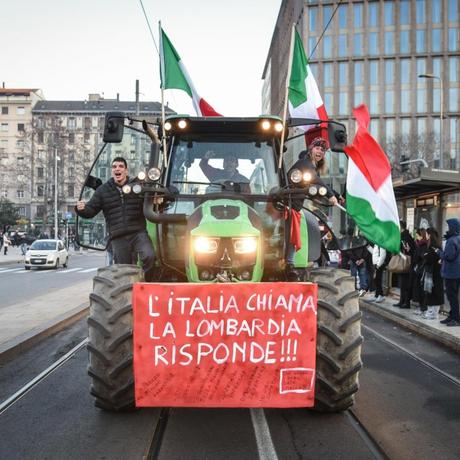
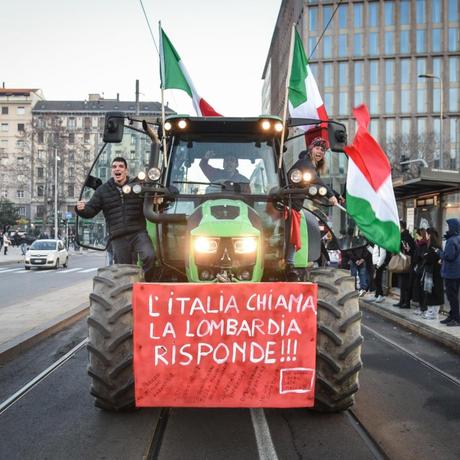
"As a result, they have reduced farmers' incomes."
The European Commission has not addressed this problem well, he said.
Second, farmers want recognition. "In one scene in the book, an old farmer told us, 'You know, when I drove my tractor down the same road I'm on now forty years ago, people raised their hands to say hello, but now people were honking their horns. to tell me to get out of the way."
Last week, the EU attempted to respond to farmers' complaints by easing controls on farms and easing pesticide and environmental restrictions, such as the requirement to keep 4 percent of agricultural land fallow.
Mr Denormandia was skeptical about what the opposition National Rally party could realistically offer farmers to improve their situation.
"It is always easier to say, as populists do, that we are going to destroy everything with simplistic lies, than to say that we are going to build something with creative efforts," Denormandie said.
Like Macron, he also pointed to the "deep-rooted conspiracy between the French far-right and a Russian regime that invaded Ukraine and killed its opponents."
In addition to Marine Le Pen's long-standing proximity to Mr Putin and her party's loan to a bank with ties to the Kremlin, he pointed to her party's refusal to vote in the European Parliament on a resolution setting out the circumstances under which Alexei Navalny was detained a year before his presidency. dead.
'Food as a weapon'
Mr Denormandie warned that Russia was using "food as a weapon" and outsmarting the West with wheat warfare.
Russia and Ukraine together represent 30 percent of global wheat exports and 80 percent of sunflower seed products, while Russia is one of the world's largest exporters of fertilizer.
"For years, even as it armed itself, Russia increased its production from 35 million tons of wheat in 2000 to 90 million today and showered countless countries with its wheat (Egypt, Lebanon, Turkey, Senegal)," he writes in his book. .
"Before he launched his tanks, [Vladimir] Putin has sharpened his wheat weapon."
As evidence, he cites Russian exports to Egypt, the world's largest wheat importer.
About a decade ago, the West accounted for 70 percent of Egypt's wheat imports, but by the time Putin's forces invaded Ukraine, 60 percent of Egypt's imports came from Russia.
'The bogeyman has sunk his teeth into it [the] Egyptian stomach," he writes. "So it is not surprising that Sergei Lavrov, the Russian Foreign Minister, was welcomed to Egypt for talks on wheat supplies in July 2022, just four months after the start of the war."
Ukraine's stubborn decision to continue wheat production and exports was not just about feeding the population and keeping the economy afloat, but "because the country knows that if it doesn't, the Russian bogeyman will like to will do in his place."
